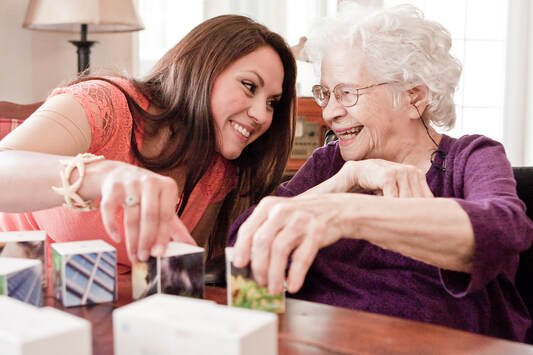Want to Maintain Your Independence? Stay Social
Most of us know physical exercise is important to healthy aging. It can help us recover from injury, ease chronic pain, fight off depression and boost our energy level; but just as important are social connections. We are social beings and interacting with others has a big impact on our overall health.
The American Public Health Association reports socialization improves mood, cognition, memory recall, and is associated with healthy behaviors, including exercise. The National Institutes of Health reports elderly adults’ social participation reduces loneliness, depression and stress; and a robust social life enhances quality of life, self-efficacy and self-esteem.
Michael Rambarose, President and CEO of the Whitney Center, a Life Care community in Hamden, CT, writes, “Socialization is like the secret ingredient that makes a healthy senior lifestyle come together.” Although he is quick to add its psychological benefits shouldn’t be kept secret. He explains, “We encourage the seniors that we serve and work with to make their social lives a priority. The people and loved ones we share life with can give everything else we do more meaning.”
Another positive consequence of socialization in older adults is it keeps the brain sharp and may even decrease the risk of developing dementia and Alzheimer’s disease or slow it down. At MorningStar at Laurelhurst, we understand the importance of community and staying engaged. Through purposeful, wellness programs and activities promoting physical, intellectual, spiritual and social connections; residents can choose how busy they wish to be each day. In addition we provide senior care and hospitality services along with luxury amenities and a choice of floor plans designed to feel like home.
Our new senior living in Portland’s historic Laurelhurst District offers 83 assisted living suites and 32 suites devoted to the care of those with Alzheimer’s and other dementia-related diseases. Please contact us to reserve your select suite and ask about our “Move-in Specials.” We open to residents in the last quarter of 2022.


